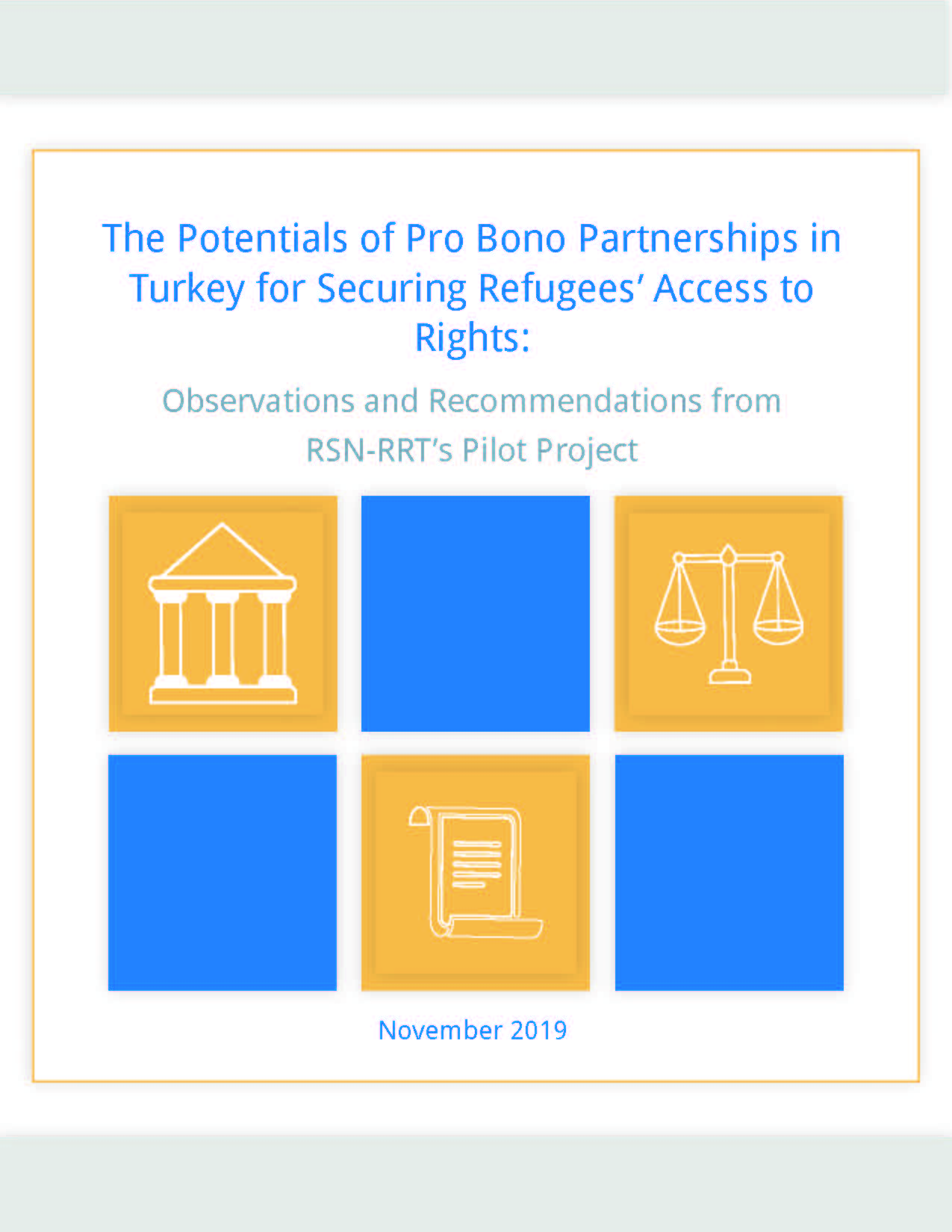The Potentials of Pro Bono Partnerships in Turkey for Securing Refugees’ Access to Rights

Introduction:
Turkey is currently the largest refugee-hosting state in the world, with approximately 4 million individuals seeking protection in the country from neighboring Syria, as well as other countries of origin including Afghanistan, Iraq and Iran. These refugee populations have a variety of legal needs, ranging from protection-specific assistance while navigating asylum procedures, to other issues that are common to refugees and citizens alike (such as matters relating to family law, and access to basic services like health, education, and legal employment). Under Turkish law, the state-funded legal aid system (Adli Yardim) is tasked with providing free-of-charge legal assistance to both citizens and non-citizens who do not have the means to pay for a lawyer, including foreign nationals subject to asylum and immigration procedures. However, as in many other contexts, the state-funded legal aid system in Turkey is strained by funding and capacity limitations. These challenges are exacerbated when it comes to refugees subject to complicated administrative and judicial procedures, not only due to the massive scale of the population in need, but also because involvement in this field requires considerable specialized expertise on a range of substantive legal issues. A number of non-governmental non-profit associations (NGOs), such as Refugee Rights Turkey, run free-of-charge legal service programs to help address the needs of this growing population. However, such NGO-administered programs are reliant on limited, project-based funding that result in services being strategically targeted to address the most urgent needs.
Drawing from the experience of a 2019 pro bono pilot project, which brought together the Refugee Solidarity Network (RSN), Refugee Rights Turkey (RRT), and two Istanbul-based law firms, this paper examines how pro bono partnerships between NGOs and private lawyers from for-profit law firms can generate additional complementary capacity to help address the legal assistance and representation needs of the refugee population in Turkey.
The Refugee Solidarity Network (RSN), a US-based non-profit that works to support refugee protection in the Global South, and Refugee Rights Turkey (RRT), a leading national refugee legal assistance provider and migration and asylum policy actor in Turkey, have been working together since 2015 to help address the most crucial legal information and assistance needs of the refugee population in Turkey, and to expand the supply and quality of legal representation available to refugees. The organizations have long recognized the potential for private lawyers and law firms in Turkey to contribute to refugee protection, and in 2019 initiated a pro bono pilot project in collaboration with two law firms to explore this possibility further, and to establish a pro bono partnership model that could guide and inspire other NGOs and law firms in Turkey to follow suit.
This was a pioneering project in the Turkish context, in that it brought pro bono resources to an existing national NGO legal service program for the direct benefit of refugees. The pilot involved a partnership with an international and a national firm, to expand and complement RRT’s existing provision of legal information and counseling for refugees in Turkey. The experience of the pilot has provided a significant learning opportunity for all actors involved. It is hoped that observations and reflections drawn from this experience can be channeled to future efforts toward promoting and establishing similar pro bono partnerships in Turkey and potentially elsewhere.
This paper first situates the pro bono concept within the global context before outlining the need for and current supply of legal assistance for refugees in Turkey. Included in the paper’s analysis are an overview of the relevant legislation in Turkey regarding the right to legal assistance and guidelines for attorney practice, a brief background on how pro bono partnerships can and have been structured in other contexts, and some comparative deductions from settings that have a strong pro bono culture. After showcasing the pilot, the paper turns to reflect on the lessons learned from this experience, and identifies a number of considerations intended to inspire and inform future efforts to mobilize pro bono partnerships for refugee protection.
It is hoped that this paper, which encapsulates the knowledge gained from this exercise by RSN and RRT, can be used by others interested in exploring similar initiatives in Turkey and other refugee host states where rights advocates and law firms are interested in contributing to refugee protection through pro bono partnerships.